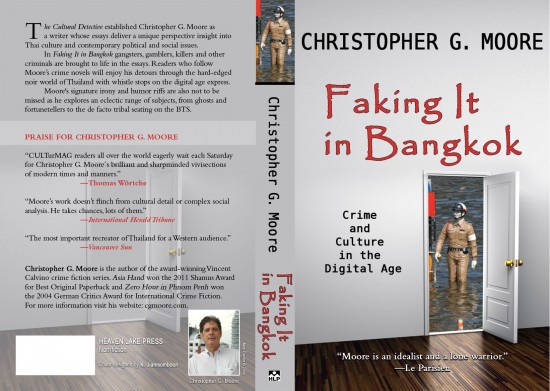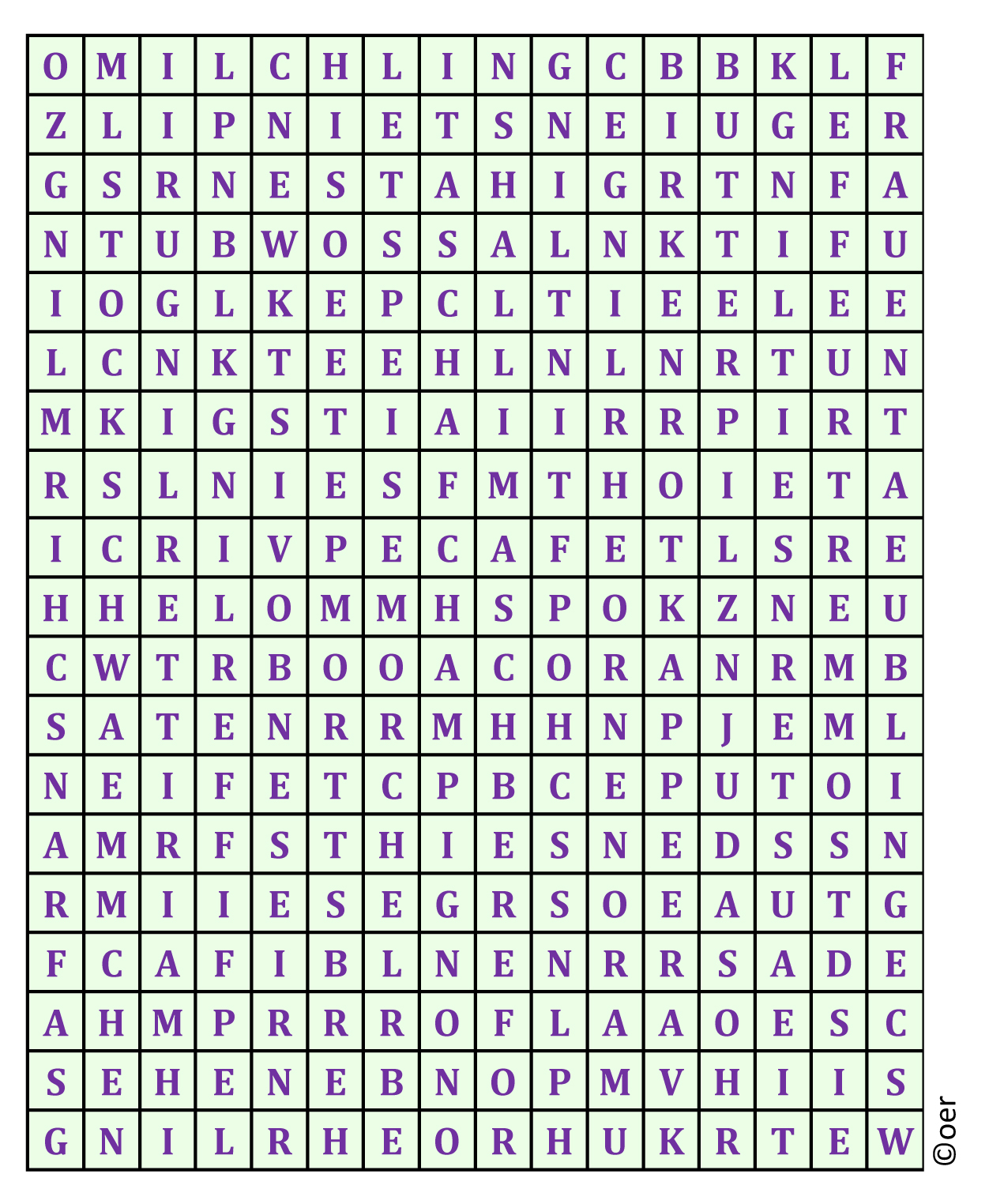 Die e-Book-Debatte bei uns geht weiter, heute mit einem Beitrag von Christopher G. Moore …
Die e-Book-Debatte bei uns geht weiter, heute mit einem Beitrag von Christopher G. Moore …
The Gold Miner’s Shovel in the eBook Gold Rush
The great California Gold Rush of 1849 drew thousands of people who dreamed of striking it rich by panning for gold. One lesson of ’49 was the people who found riches weren’t the miners but those who sold them shovels, pans, buckets and pots. Another lesson is that whenever there is a gold rush, those not caught up in the fever figure out a way to supply the shovels and picks. This merchant class knows where the money is to be found. It is rarely in the mass hysteria of crowds all searching for the elusive gold.
 What reminded me of the Gold Rush was an article in The New York Times featuring an online entrepreneur who founded a business of selling reviews to self-published authors of eBooks. He invented the digital shovel for the new era of gold rush miners—self-published eBook authors.
What reminded me of the Gold Rush was an article in The New York Times featuring an online entrepreneur who founded a business of selling reviews to self-published authors of eBooks. He invented the digital shovel for the new era of gold rush miners—self-published eBook authors.
Last Friday, I wrote about the practice of buying shopping cartloads of Twitter followers. Another gold miner’s pan in the river rumored to have gold turns out to be only part of the gear eBook authors are using in their mining operation. This is part of a larger story of how some authors are gaming the system. (It would be wrong to say all or even a vast majority of self-published eBooks authors are engaging in this conduct, or that it is limited to the self-published author—it is not.)
The stories from the miners who have struck gold and the shovels, pans and buckets they’ve employed, continue to expand. The New York Times story ran for four-page article detailing the buying of reader reviews. John Locke, who cracked the million book sale’s mark as a self-published author apparently kick-started his best-seller status through paying for 50 reviews of his books.
The dark side of publishing is getting darker as the number of eBooks and self-published authors increases and traditionally published authors feel the heat of declining sales and rankings. Before the internet and e-publishing, an author, if she or he wanted to be published, had to find an agent (no easy task) and the agent had to find a publisher for the book. That process was a difficult, tiresome, time-consuming, frustrating, and at times bitterly disappointing. People who felt that they had a book in them saw these obstacles to getting the book published usually decided the effort of writing a book with a dim chance of getting published wasn’t worth the effort. They elected to keep that book inside them.
With these old barriers removed, the obstacles to publishing have been torn down like the Berlin Wall. Anyone can publish just about anything as an eBook, although tearing down the barriers to publishing has done nothing to remove the barriers to selling more than a 100 copies.
But a number of authors have been creative in finding ways to tunnel behind the remaining Berlin Wall—bestseller status. Those channels have become expressways. The ‘Black Hats’ in the gray industry supporting Internet services are the engineers building them.
The fallacy in e-publishing is that now traditional publishers no longer hold the keys to the door to publishing. All one needs are adoring fans and reviewers and the author can show the world that his or her talent was always there, neglected, unrecognized and nearly lost for posterity but for eBooks. In other words, you have gold to sell. If only you could let everyone know, and the cost is below market price for gold, too.
Things haven’t quite worked out that way for most eBook authors.
It is turning out that readers and authors in eBooks culture are losing their innocence as discover the environment is parasite infested; “Black Hats” are a business, its members sell all digital tools to game the system. Readers can no longer trust reviews they read online. They start to question the actual number of people who make up an author’s platform. It’s like trying to buy a car from a lot in a bad neighborhood. You might get a deal, or you might get a lemon. The realization is hitting home that the eBook business was never about books. It hides in the book world; wants to be accepted as a book world that readers and authors can trust.
The more we learn about how the “Black Hats” effectively game the system, the more we learn the hard lesson that readers are another group of consumers who can be fooled and tricked. The eBook racket is modeled on the gold miners’ supply operation, only it operates in cyberspace. What the New York Times article on bought reviews fails to deliver is a tour through the Black Hat world where professional hired-guns plant reviews for hotel rooms and just about any other consumer good or service. This website has an article titled “Fake Review Optimization –How black hat masters beat the travel system” that will introduce you to the underworld where the Black Hats toil.
 The death of Neil Armstrong is a reminder of men who were heroes not for their huge accomplishments but for the fact they refused to prostitute themselves to capitalize and turn their achievement into money. Armstrong bought a farm in Ohio. He was a recluse. He avoided interviews and talk shows. J.D. Salinger avoided interviews, the literary limelight, and the cocktail circuit. He let his books find their own way.
The death of Neil Armstrong is a reminder of men who were heroes not for their huge accomplishments but for the fact they refused to prostitute themselves to capitalize and turn their achievement into money. Armstrong bought a farm in Ohio. He was a recluse. He avoided interviews and talk shows. J.D. Salinger avoided interviews, the literary limelight, and the cocktail circuit. He let his books find their own way.
The eBook world isn’t noted for the publicity shy personalities of a Neil Armstrong or J.D. Salinger. This is the recreation of the old-styled Wild West of the unsettled frontier with the brash gunslingers spoiling for a fight.
 The digital world has produced a number of eBook authors who, like preachers of that old time religion, gather their flocks and set up court in the tradition of third world dictators. Part of this striving for success in the eBook world is understandable as an adaptation of the celebrity culture to the culture of books. There have always been celebrity authors from Charles Dickens to Ernest Hemingway and F. Scott Fitzgerald, to the Norman Mailers, John Updikes and Saul Bellows. They gather audience of admirers. Their books were read and admired across class, religious and political divides. These writers didn’t write down to their audience. And that audience was book orientated, cohesive, and quality minded. In their day, books were an important part of the intellectual domain that educated people were expected to read and expected those in their circle to read. When the content of books were the subject of conversation.
The digital world has produced a number of eBook authors who, like preachers of that old time religion, gather their flocks and set up court in the tradition of third world dictators. Part of this striving for success in the eBook world is understandable as an adaptation of the celebrity culture to the culture of books. There have always been celebrity authors from Charles Dickens to Ernest Hemingway and F. Scott Fitzgerald, to the Norman Mailers, John Updikes and Saul Bellows. They gather audience of admirers. Their books were read and admired across class, religious and political divides. These writers didn’t write down to their audience. And that audience was book orientated, cohesive, and quality minded. In their day, books were an important part of the intellectual domain that educated people were expected to read and expected those in their circle to read. When the content of books were the subject of conversation.
That time has gone. The world of books has moved on since the passing of these authors. Those who have replaced them have found themselves in a world of vanishing bookstores, critics, newspaper reviewers, independent publishers, and crowded by other forms of leisure time online, along with diminished attention span and focus required to read a complex novel.
Publishing, with the explosion of eBooks, has become a feature of the retribalization of populations. To get a book contract with a large publisher is easier for those who have established their ability to self-publish a book that demonstrates the author’s ability (not to write or tell a story) but to act as a superior tribe accumulator. Buying Twitter followers is a way to announce the size of one’s tribe. Agents and publishers call it a ‘platform’ but let’s be blunt—it is the size of the writer’s tribe that counts.
Buying reviews is a short cut. With dozens if not hundreds of five-star reviews, the author shows his tribal chops; he has the commercial ability to form a unified consensus amongst a group of people and he lays claim to being their leader. The digital book becomes a sacred, divine text. We don’t have to go back far into history to know that criticism of the divine is heresy, and anyone who says your tribal leader has written a moronic book, populated with two-dimensional characters, who have nothing of interest to say, is going to find the full wrath of any quasi-religious cult follower who believes his or her idol and belief system has been assaulted.
A reviewer who says the book isn’t her cup of tea is also put to the sword by the author’s tribe. A book by a tribal leader is by definition a five-star, #1 NYT bestseller. Anything less is intolerable. One example is a New York Times bestselling author suggested that a reviewer take down her one-star Amazon review of her book after the reviewer named Corey Ann had received threatening phone calls from the author’s fans. One of the fans told the reviewer to kill herself for having given the book a one-star review, which came after the author’s husband lambasted another reviewer for giving his wife a one-star on Amazon.
Interestingly the author, in a plea to put this unpleasantness to a stop, asked the reviewer who received death threats to remove her one-star review. In other words, she blamed the reviewer for the attack.
One would have hoped the author would post a comment to the effect:
If you post a review saying you love my book that makes me happy. If someone doesn’t share that opinion, that is fine, too. Negative reviews DO NOT MAKE ME UNHAPPY. They are part of what I accept as an author and all readers should accept as part of a book loving culture. We live in a world of diversity, please allow others to share their opinions of my books because this is the true meaning of freedom of expression. Honor this freedom, and you honor not just my books but all books.
But that isn’t what happened. The reviewer didn’t remove it. But it was removed from Amazon. Censored out of existence. Stored in Room 101 next to Winston Smith’s chair. This smacks of the entitlement culture of the new world order; a way of looking at things that Orwell would have seen as evidence of minds sculpted with the knife of fascism and totalitarianism. Read Corey Ann’s account; it is like watching a mugging in slow motion. It is ugly and painful.
How did we arrive at a point where dissent and criticism are prohibited and those who persist are bullied and threatened? Five-star reviews are like weeds not unlike the grade inflation that has ruined the gardens of schools and universities. Things turn ugly online when someone tries to weed the garden. Reviewers are ambushed and taken down. Why? Because they misunderstand the new social contract where everyone is a genius, everyone is special, and you, too, are Number 1. No one’s feeling must be hurt by a review that the book they wrote has flaws. We are witness to the narcissistic personality having found the perfect medium—the Internet—where it breeds clones of itself by the hundreds of thousands.
Books are no longer books but ‘objects’ of veneration. A group of authors have crossed over into the realm of tribal flags, colors, sacred writings, which allow the leader to rally his or her followers—who become troops in battles against anyone who’d dare give a one or two star review to the divine revelations contained in the leader’s latest eBook. We have entered into the land of ‘entitlement’, where some authors expect only five-star reviews.
Solipsism is a curse and digital publishing promotes this terrible defect in the human psyche. It draws from the sports metaphor where winning, being number one is the driving passion for the player and the audience. Being Number One is being The Most Valuable Player on the team. The mentality is also found in the military. The numbers of book sales translates into the equivalent of a soldier’s rank and combat decorations. Sales figures make the author a ‘hero-warrior’ to his tribe and demonstrate to his loyal followers that indeed they should all take pride in their tribal leader who is owed everything.
 As eBooks and the digital frontier becomes the new place for tribal warfare, no one is much talking about the books themselves. That is the point. How we look at the publishing process, the role of authors, and the role of readers; books have become tribal icons, vanity calling cards, and status plays. The bands of devoted readers aren’t going to sift through the hundreds of thousands of new titles any more than traditional publishers with their slush piles. Most people read very few authors. Readers stick by the authors they know and like. At the same time, readers are open to try new authors if they know about a book and see that others have liked it by posting a review. As readers, we are also panning for gold.
As eBooks and the digital frontier becomes the new place for tribal warfare, no one is much talking about the books themselves. That is the point. How we look at the publishing process, the role of authors, and the role of readers; books have become tribal icons, vanity calling cards, and status plays. The bands of devoted readers aren’t going to sift through the hundreds of thousands of new titles any more than traditional publishers with their slush piles. Most people read very few authors. Readers stick by the authors they know and like. At the same time, readers are open to try new authors if they know about a book and see that others have liked it by posting a review. As readers, we are also panning for gold.
Like most religions, most books/authors, over time, disappear without a trace like a gold miner’s boot print on a muddy riverbank. The same fate awaits most eBooks. Most of the authors will never have a tribe. Just like most of the gold miners in ’49 didn’t find gold. That doesn’t stop the ruthless, unethical and fraudulent activities of some authors to manufacture a phony tribe, or those with a tribe to bully anyone who dares to give less than five stars to a book by a cult leader.
 There was a time when reviewers looked at the merits of a book, and readers, knowing a reviewer’s taste, and decided whether they might like the book. The culture of legacy publishing and the professional reviewers have been on a rapid decline. Is it now the cult of the celebrity author and not the book that matters? Have we lost our ability to admit that even the best of authors can write an average to poor book?
There was a time when reviewers looked at the merits of a book, and readers, knowing a reviewer’s taste, and decided whether they might like the book. The culture of legacy publishing and the professional reviewers have been on a rapid decline. Is it now the cult of the celebrity author and not the book that matters? Have we lost our ability to admit that even the best of authors can write an average to poor book?
The world of books spins out of the old orbit—and the new orbit is looking more and more like something out of Orwell. Public relations, marketing and gaming the system has created distorted and ugly politics, and it created an even uglier, desolate and artificial world leaving behind an unmarked grave of authors who enriched us with their rare glimpses of life and the human condition forged through imagination, creativity and talent.
As we celebrate the possibility of expanding the number of writers, we also mourn a time passing out of mind when a negative review didn’t trigger death threats or threats of litigation to the reviewer. The new gold rush has just begun, and if money is your game, then you’ll be busy this weekend designing the latest shovel for the legions of eBook gold miners who have heard the siren call of the new California.
Meanwhile, we should remember most of the world of books is still found in libraries, bookstores, and news agents. The traditional book industry had and has its problems and shortcomings but it was never an easy system to game. In comparison with the fraudulent and unethical practices that continue to evolve in the eBook world, readers may return to buying physical books. They may return to bookstores. That would be a good thing. The independent bookstore staff cared about its customers because the owners were also readers. Sadly many of the independents are closed or in financial trouble. If you are lucky enough to have a local independent bookstore, stop in and give them a hug and tell them, thank you for being there. Buy one of their books. Ask a member of staff to recommend a book.
If you are broke, or don’t have a job, but love to read. Send me an email and I’ll send you a book. Read it, pass it on to someone who finds themselves in the same circumstances, and ask them to do the same. Authors write to be read. It’s hard being an author today, and it seems it is hard being a reader, too. With some luck we might find more people in the book industry who adopt the message on the sign at the bookstore below.
I’d say that dude is one beautiful human being.
The words on the sign are the kind of message I want to remember when I feel depressed about how the eBook business has been gamed by the “Black Hats.”
Christopher G. Moore
Dieser Artikel erschien am 30.08.2012 auf unserer Partnerseite.
 The Wisdom of Beer
The Wisdom of Beer
Der Untreue-Index beim Unionsverlag. Bangkok Noir. The Cultural Detective. Kindle/Amazon. UK and Kindle/Amazon USA. His latest Vincent Calvino novel, 12th in the series, is titled 9 Gold Bullets and is available as an ebook on Kindle. Moores Podcast. Die Vincent Calvino-Romane. Der Autor beim Unionsverlag hier. Zu Christopher G. Moores Website und zu Tobias Gohlis’ Rezension des Untreue Index bei arte.













